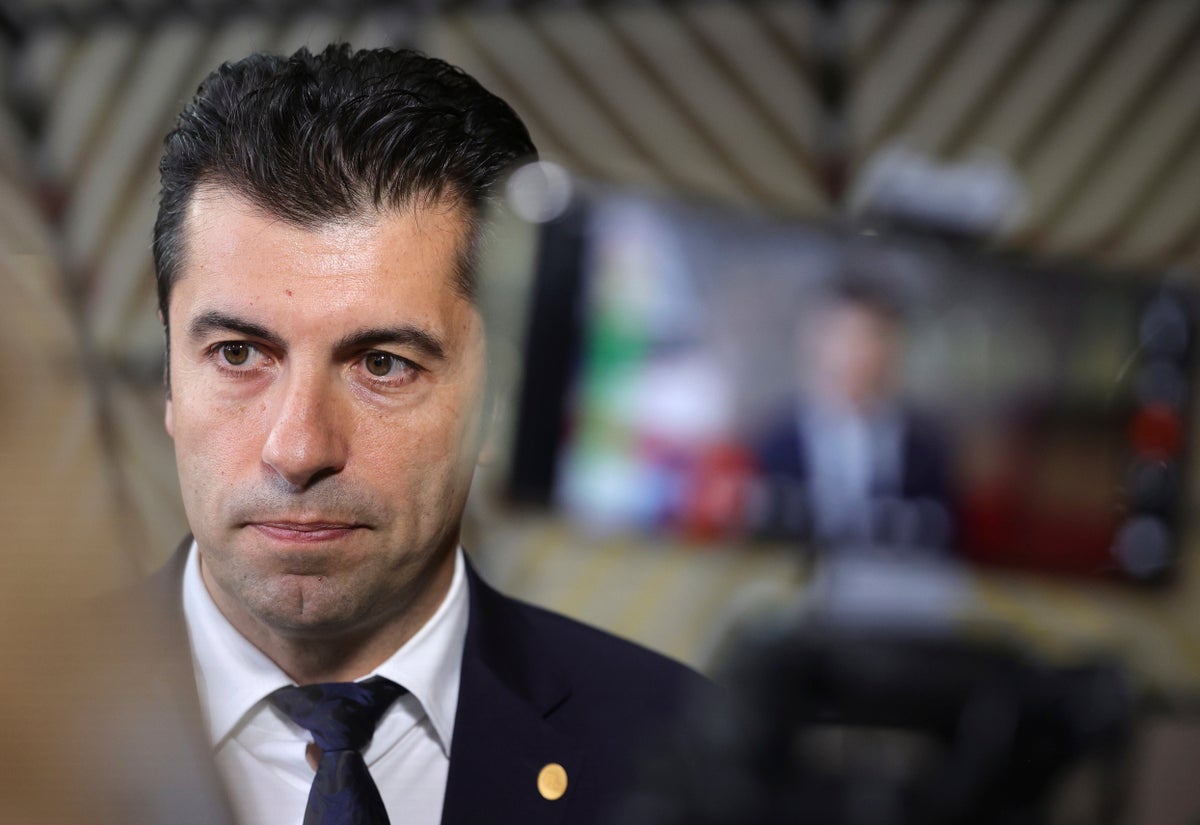
A Bulgarian government crisis Thursday threatened to tarnish a European Union summit that was intended to bolster the EU membership hopes of Balkan countries and to show Western resolve in the face of Russia’s war in Ukraine.
Bulgaria's parliament voted no-confidence Wednesday in the coalition government of Prime Minister Kiril Petkov, presenting an obstacle to the long-delayed start of the EU's accession negotiations with North Macedonia and Albania.
All three countries belong to NATO, but Bulgaria has used its status as an EU member to block the other two from proceeding on the path to join the 27-nation European bloc. Bulgaria has a dispute with North Macedonia over ethnicity and language, and its stance has also stalled Albania’s progress the EU is treating the pair as a political package.
“It’s a disgrace that a NATO country – Bulgaria – kidnaps two other NATO countries, namely Albania and North Macedonia, in the midst of the hot war at Europe’s backyard,” Albanian Prime Minister Edi Rama said as he arrived for the EU-Western Balkans summit in Brussels. “It’s not good to see that 26 other countries sit still in a scary show of impotence.”
The EU, a political and economic club that boasts the world’s biggest single market, wants to reassure countries in the Balkans that have waited years for admission that the bloc’s doors remain open.
Russia’s war in Ukraine has added to the list of aspiring EU members. The governments of Ukraine, Moldova and Georgia rushed in membership applications after Russia invaded its neighbor.
EU heads of state and government meeting in Brussels for a two-day summit starting Thursday plan to consider whether to make Ukraine a candidate for membership, the first step in the accession process.
The EU last admitted a new member - Croatia - in 2013. The enlargement process slowed as euroskeptic voices grew in member nations such as Germany, France, Italy and the Netherlands – all founding members of the bloc in the 1950s.
The eurozone debt crisis 10 years ago, a 2015 migration wave into Europe and the U.K.'s 2016 referendum decision to pull out of the EU also contributed to political unease with the bloc’s further expansion.
Almost every step of the EU membership process, from recognizing a candidate to completing elements of entry negotiations that can last years or decades, requires unanimous backing from the bloc’s national governments.
European Council President Charles Michel, the EU summit chair, said the bloc is committed to rejuvenating the membership bids of Western Balkan countries.
“There is a very strong political will to reenergize the process,” he said. “The Western Balkans are a priority for us.”
German Chancellor Olaf Scholz echoed the point.
“The most important question is that we all work together and that the states from the Western Balkans will have a good opportunity to become really members of the European Union,” Scholz said. “They worked so hard, so it is our common task to make this something that will happen.”
But with the EU planning to put Ukraine on the official membership path by making it a candidate, Albania’s Rama said the continuing deadlock affecting North Macedonia and Albania should serve as a warning to Ukrainians about future entry hurdles.
“It’s a good thing to give candidate status, but I hope the Ukrainian people will not make many illusions about it,” Rama said.







